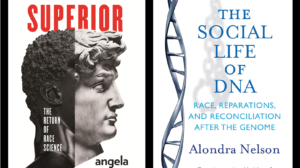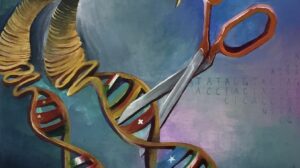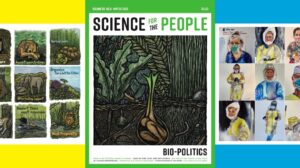As activists, we take to heart Foucault’s definition and expand upon it to articulate a new conception of “bio-politics,” so hyphenated to highlight the necessity of productive exchange between science and politics. Our members and members of other grassroots organizations recognize that biology, like all of science...
Volume 23, Number 3
Bio-Politics
Winter 2020
Get Involved with SftP
Since 2014, activists across the United States and in Mexico have rebuilt the organization, which now has about a dozen active local chapters and numerous working groups that bring people in different locations together to work on specific...
Our magazine is run exclusively by volunteers. We devote our labor solely for the pursuit of a science and a society free from the shackles of capital! In keeping with our values, our magazine makes all of our content free and accessible...
We put out Call for Proposals for print or special issues frequently. Sign up to our newsletter for updates. Please also visit our special issue pages as some may be accepting articles on a rolling basis. Contributor Fees $250: Feature...























